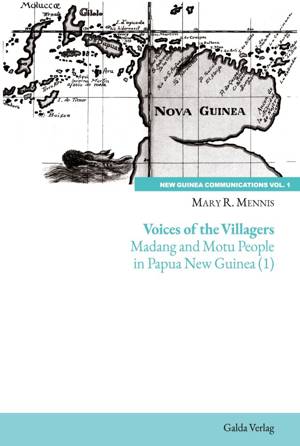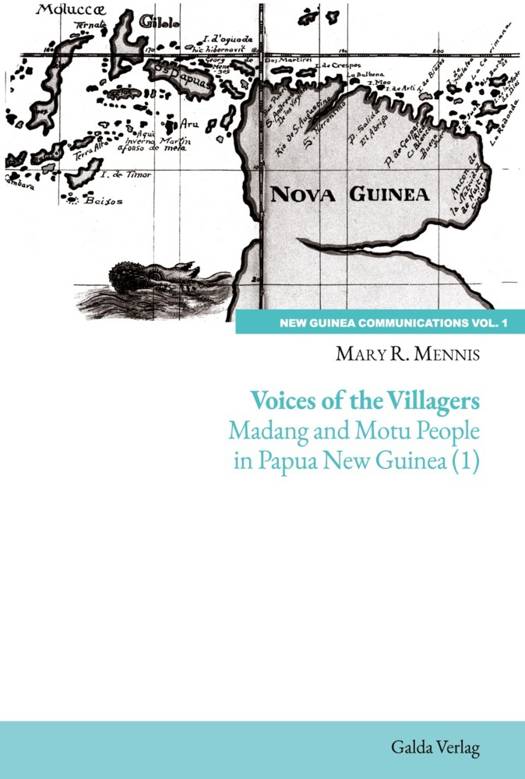
- Afhalen na 1 uur in een winkel met voorraad
- Gratis thuislevering in België vanaf € 30
- Ruim aanbod met 7 miljoen producten
- Afhalen na 1 uur in een winkel met voorraad
- Gratis thuislevering in België vanaf € 30
- Ruim aanbod met 7 miljoen producten
Zoeken
Voices of the Villagers: Madang and Motu People in Papua New Guinea, 2 Teile
Mary R. Mennis
€ 87,95
+ 175 punten
Omschrijving
PART 1Mary Mennis taped the voices of village elders along the Madang coast in the 1970s. Topics included: origins of the tribes; traditional village life before outside contact; spiritual beliefs; weather magic; men's houses and initiations; and the customs of trading in triple-deck canoes along the coast using earthenware pots as collateral. It also covers the origins of their cargo cults which differ from the theory proposed by Peter Lawrence.Mary Mennis and her husband, Brian lived in Papua New Guinea for 20 years between 1962 and 1982. Brian, a surveyor, was posted to Madang for eight years beginning in 1971 when the centenary of Miklouho Maclay was being celebrated in Madang. After reading his accounts of the large trading canoes he saw in 1871, Mary became fascinated in the local culture. She discovered the people had stopped building these canoes during the war in the 1940s. She then encouraged 5 old men who still had the knowledge to build another canoe in 1978 and she documented its construction, the magic of the weather men; the pots they traded and the whole trading system. This knowledge was on the verge of being lost. Launching one of Mary's earlier books, Grand Chief Sir Michael Somare, first Prime Minister of Papua New Guinea thanked her for her work and said the book "The Flagged History of Madang" would play a great role in educating the young people.PART 2What were the villagers' reactions to the outsiders who came to Madang? These are found in taped interviews in the 1970s from memories handed down from earlier generations. First was Miklouho Maclay who arrived in 1871. The people thought he was from the moon. In 1884 when Madang became a German Province, the villagers were forced to work on plantations and on clearing land. They wanted to return to their old ways of trading and having feasts. They revolted in 1904 and were harshly punished. During WW II the Japanese occupied Madang and again their way of life was affected. After the war the Australian Government was in charge until 1975 when Papua New Guinea became independent. In these pages we discover what the people thought about all these changes. Basically they saw the Germans as the first bosses then they left and the Australians took over, then during the war the Japanese arrived and they were the new bosses. You had to do what they said or you would be in trouble.The final part of Part 2 contains the memories of the Motu traders, the hiri trade and the large lagatoi canoes which carried pots to the Gulf in exchange for the much needed sago. These interviews were made in 1995, 50 years after the end of WW II. These two volumes "Voices of the Villagers" have preserved much knowledge of the history and culture of the Bel people of Madang and to a lesser extent that of the Motu people of Port Moresby.
Specificaties
Betrokkenen
- Auteur(s):
- Uitgeverij:
Inhoud
- Aantal bladzijden:
- 624
- Taal:
- Engels
- Reeks:
Eigenschappen
- Productcode (EAN):
- 9783962031442
- Verschijningsdatum:
- 27/04/2021
- Uitvoering:
- Paperback
- Afmetingen:
- 155 mm x 230 mm
- Gewicht:
- 1043 g

Alleen bij Standaard Boekhandel
+ 175 punten op je klantenkaart van Standaard Boekhandel
Beoordelingen
We publiceren alleen reviews die voldoen aan de voorwaarden voor reviews. Bekijk onze voorwaarden voor reviews.











